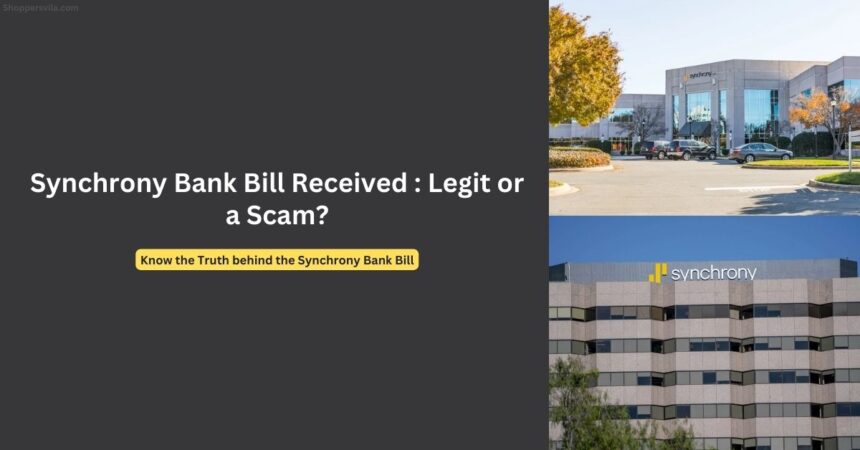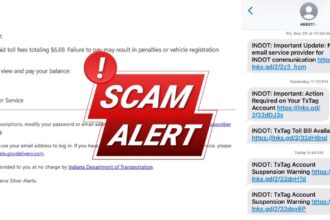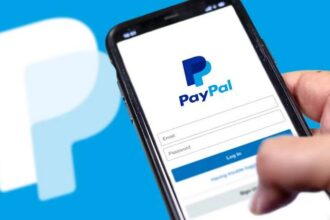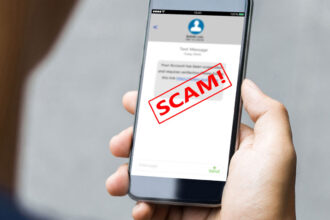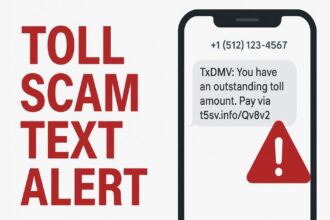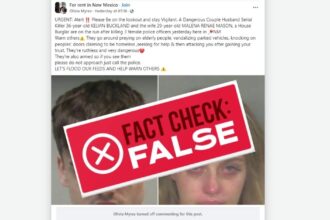A concerning trend of fraudulent bills and identity theft schemes targeting Synchrony Bank customers has emerged across the country. Victims receive authentic-looking statements claiming they owe thousands of dollars on accounts they never opened. The fraudsters behind these schemes have become increasingly sophisticated, creating convincing forgeries that can fool even financially savvy consumers.
As one victim described in a recent online forum: “We received a bill from Synchrony Bank that said we owed over $6,000 on a HOME DESIGN credit account. We’ve never heard of this bank and have never applied for this type of credit.”
Synchrony Bank, which partners with retailers like Amazon, Lowe’s, TJ Maxx, and many healthcare providers through CareCredit, has become a prime target for these scams due to its extensive portfolio of store-branded credit cards and financing options.
How the Synchrony Bank Bill Scam Works
The scam typically begins when victims receive what appears to be a legitimate Synchrony Bank statement in the mail. These statements often claim the recipient has an outstanding balance on a retail credit account—frequently a home improvement financing program. The bills are meticulously designed to mimic authentic Synchrony statements, complete with the correct logo, formatting, and account information layout.
What makes this scam particularly deceptive is that the perpetrators have already:
- Obtained sufficient personal information to open accounts in victims’ names
- Charged significant amounts to these fraudulent accounts
- In some cases, even made initial payments to establish the accounts’ legitimacy
“What’s unusual is that these fraudsters are making payments on the accounts,” explains cybersecurity expert Thomas Rodriguez. “This extra step makes the fraud harder to detect because it doesn’t trigger immediate red flags that most financial institutions look for.”
Common Variations of the These Scam
The fraudulent bill scheme represents just one approach scammers use when targeting Synchrony customers. Other prevalent variations include:
Phishing Communications
Scammers send emails or text messages claiming to be from Synchrony Bank, warning about “suspicious activity” or “account verification needed.” These messages contain links to convincing but fake websites designed to harvest login credentials and personal information.
Phone Scams (“Vishing”)
Victims receive calls from individuals claiming to represent Synchrony Bank’s fraud department. The callers typically:
- Warn about unauthorized transactions
- Claim the account has been compromised
- Ask for personal information to “verify identity”
- Request immediate payment to resolve the issue
Credit Card Application Fraud
Some scammers apply for legitimate Synchrony credit cards using stolen identities. They intercept the cards before they reach the victim and begin making purchases, leaving the victim responsible for charges they never made.
Red Flags That Signal a Synchrony Bank Scam
Knowing the warning signs can help consumers identify these scams before falling victim. According to Synchrony’s fraud prevention department, be wary if:
- You receive a bill for an account you don’t recognize
- The correspondence creates urgency or threatens immediate consequences
- You’re pressured to make a payment over the phone
- The caller or email asks for sensitive information like Social Security numbers or PINs
- The communication contains unusual grammatical errors or formatting issues
- The sender’s email address doesn’t match official Synchrony domains
- Links in emails direct to suspicious URLs rather than synchrony.com
- A caller requests payment via wire transfer, gift cards, or cryptocurrency
As one Synchrony representative stated, “We will never email customers requesting personal information, nor will we call asking for immediate payment over the phone.”
The Growing Sophistication of Financial Scams
What makes these scams particularly dangerous is their increasing sophistication. Modern scammers employ several advanced techniques:
AI-Generated Content
Scammers now use artificial intelligence to create convincing communications without the grammatical errors or awkward phrasing that once served as red flags. AI-generated emails and letters can mimic official bank communications with remarkable accuracy.
Voice Cloning Technology
In more targeted scams, perpetrators may use AI voice cloning to impersonate bank representatives or even family members claiming to need financial help. These technologies can create convincing voice replicas from just small audio samples.
Deepfake Videos
The most sophisticated scammers employ deepfake technology to create video interactions where someone appears to be a legitimate bank representative. These videos can be used in video calls to build trust before requesting sensitive information.
“The technology available to scammers has advanced dramatically in recent years,” notes digital security analyst Maria Chen. “What once required significant resources and technical knowledge is now available through user-friendly applications.”
How to Protect Yourself from These Bank Bill Scams
Taking proactive measures remains the best defense against these sophisticated scams. Experts recommend the following strategies:
Verify All Communications Independently
Never use the contact information provided in a suspicious communication. Instead:
- Look up Synchrony Bank’s official customer service number (typically found on the back of your legitimate card)
- Call this number directly to verify any communications you’ve received
- Ask specifically about the account in question
Monitor Your Credit Reports Regularly
Free weekly credit reports are available from all three major credit bureaus through AnnualCreditReport.com. Regular monitoring allows you to:
- Spot unauthorized accounts quickly
- Identify suspicious inquiries
- Challenge fraudulent information promptly
Implement a Credit Freeze
A credit freeze prevents new accounts from being opened in your name without your explicit permission. This measure:
- Blocks access to your credit file by potential creditors
- Requires your verification before any new credit line can be established
- Can be temporarily lifted when you legitimately need new credit
Use Strong Authentication Methods
For legitimate accounts, strengthen your security by:
- Enabling multi-factor authentication on all financial accounts
- Using unique, complex passwords for each financial institution
- Considering a password manager to maintain different passwords securely
Be Skeptical of Unsolicited Communications
Train yourself to approach unexpected communications with healthy skepticism:
- Don’t click links in emails or texts claiming to be from financial institutions
- Be suspicious of calls about accounts you don’t recognize
- Remember that legitimate banks rarely call regarding “urgent” account issues
Verdict: Is Synchrony Bank Bill Legit or Scam?
When receiving an unexpected Synchrony Bank bill, determining legitimacy is crucial. Here’s how to distinguish between legitimate statements and fraudulent ones:
Legitimate Synchrony Bills:
- Come from accounts you recognize and have actually opened
- Use consistent branding and formatting from previous statements
- Can be verified by calling Synchrony directly at their official number
- Contain accurate personal information and purchase history
- Include a genuine account number that Synchrony can confirm
Fraudulent Synchrony Bills:
- Claim you owe money on accounts you never opened
- May contain slight inconsistencies in logos or formatting
- Often create a sense of urgency to pay immediately
- Cannot be verified through Synchrony’s official channels
- May direct payments to unusual payment methods
Financial fraud expert Amanda Torres explains: “The most reliable way to verify any suspicious bill is to contact Synchrony directly using their officially published phone number—not the number on the suspicious bill. Legitimate bills will be connected to accounts you actually opened, while fraudulent ones won’t appear in Synchrony’s systems under your name.”
Complaints About Synchrony Bank
Complaints about Synchrony-related scams have surged in recent years, according to data from the Better Business Bureau (BBB) and Consumer Financial Protection Bureau (CFPB). In fact, the BBB profile for Synchrony shows thousands of complaints in the past three years alone, with a significant portion related to fraudulent accounts and billing issues.
Common consumer complaints include:
| Complaint Type | Frequency | Description |
|---|---|---|
| Unauthorized Accounts | Very High | Bills received for accounts never opened by the consumer |
| Phantom Debt Collection | High | Attempts to collect debts not owed or already paid |
| Credit Report Errors | High | Fraudulent accounts appearing on credit reports |
| Difficulty Resolving Fraud | Medium | Long resolution timelines and complex dispute processes |
| Identity Theft | Very High | Personal information used to open multiple accounts |
One complainant described their experience: “I received a Synchrony statement claiming I owed over $7,000 on a home improvement credit line I never applied for. When I called to dispute it, I discovered someone had opened multiple accounts in my name. It took me three months and dozens of phone calls to resolve.”
Consumer advocates note that while Synchrony Bank itself is legitimate, the high number of store cards and financing programs they offer makes them a frequent target for scammers looking to exploit their brand recognition and wide customer base.
What to Do If You’re Targeted
If you believe you’ve been targeted by a Synchrony Bank scam, taking quick action is essential:
- Contact Synchrony’s Fraud Department – Call 1-866-834-3205, Synchrony’s dedicated fraud line, to report the incident.
- File Identity Theft Reports – Report the fraud to:
- The Federal Trade Commission at IdentityTheft.gov
- Your local police department
- The three major credit bureaus (Equifax, Experian, and TransUnion)
- Freeze Your Credit – Place a freeze on your credit reports to prevent further fraudulent accounts from being opened.
- Document Everything – Keep detailed records of:
- All communications with the scammers
- Copies of fraudulent statements or emails
- Call logs of conversations with Synchrony and other authorities
- Monitor Your Accounts – Check all financial accounts frequently for suspicious activity.
The Broader Impact of Financial Fraud
These scams extend beyond individual victims. The Federal Trade Commission reports that Americans lost nearly $8.8 billion to fraud in 2024, with identity theft and imposter scams among the most costly categories.
Financial institutions like Synchrony Bank are working to strengthen their security measures, but the sophistication of modern scams requires vigilance from consumers as well. “The partnership between banks and customers is crucial in combating fraud,” explains financial security consultant James Wilson. “Even the most robust security systems can be circumvented if consumers aren’t practicing basic security hygiene.”
As scammers continue to evolve their tactics, staying informed about the latest schemes represents the first line of defense. By understanding how these scams operate and implementing preventative measures, consumers can significantly reduce their risk of becoming victims. Remember that legitimate financial institutions will never pressure you for immediate payment or personal information through unsolicited communications.
If you believe you’ve been targeted by a Synchrony Bank scam, contact their fraud department immediately at 1-866-834-3205.
